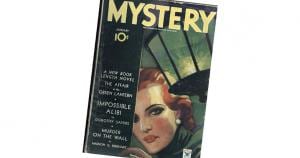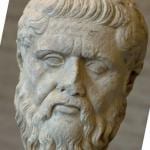 A writer like Dorothy Sayers presents problems for a program exploring great works of art. Sayers was an outstanding writer, but she never produced a Hamlet or Pride and Prejudice. Her scholarship, even on Dante, is clever, but not state of the art (my Dante scholar friends claim).
A writer like Dorothy Sayers presents problems for a program exploring great works of art. Sayers was an outstanding writer, but she never produced a Hamlet or Pride and Prejudice. Her scholarship, even on Dante, is clever, but not state of the art (my Dante scholar friends claim).
Yet I would claim that Dorothy Sayers, like CS Lewis or Langston Hughes, can be read in a great texts program. The sum of the genius, the person behind the prose and poetry, is greater than any individual work. When done with Sayers, one has seen a whole soul. She left us a literary image of her excellence, quirks, failures, and even sins.
Taken as a whole, a man can do worse than aspire to be like Dorothy Sayers.
Our college seniors can choose to go deeply into the work of one writer and one senior picked Sayers. We are, then, reading all of Sayers together. Today we discussed a very early work Whose Body? that was published in 1923. This book is almost as close to Napoleon I as it is to us in time, but the novel does not feel dated to my college students. Sayers is both relying on Christian morality and on the creation of a genre, the detective novel, whose rules keep her prose (almost) timeless.
When she asks Are Women Human? or looks at the Lost Tools of Learning she also manages to stimulate a deeply conservative feminism and the contemporary classical education program. Both essays are very good, but not Republic in depth. Sayers captures, however, a possibility that she lived: a deeply feminist traditionalism and a better vision for education than mere job training.
You can easily argue with a Sayers essay, or translation choice in Dante, but you cannot easily surpass Sayers. She is (in many ways) what we aspire to be: literate, but accessible, brilliant, but relevant, heading to holiness while a sinner. A term like this one with the (nearly) complete Sayers is the best way to read her, since any given paragraph may not be such a much, but any given year in her life might be. In a college program that venerates Saint Constantine, she wrote a play examining him that, if not great, is nearly very good.
Who does all she does? Who has a mind more awake? Who overcomes the horrible limits placed on women of her generation with more verve, beauty, wit, and grace? Who is a more brilliant apologist in her generation? Who managed to be both marketable and Oxford trained while also making her way in the advertising world?
She is a great literary soul and we can learn from reading her many books, articles, speeches, plays, and essays. If Shakespeare had given us nothing greater than Henry VI (in all its uneven parts), then we might still read him to see the Bard of Avon who made a living, earned a title for his family, and yet also looked (fairly) deeply into the human condition. Dorothy Sayers is the equal of that Shakespeare.
She is a mind awake.












